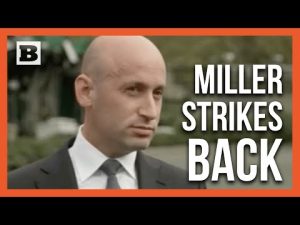It seems that navigating the tempestuous waters of the global economy requires the finesse of an expert navigator. In this case, President Trump, with his signature brand of bravado, proudly announces a 90-day reprieve in the trade tango between the United States and China. While some may want to polish this move with the glitter of “The Art of the Deal,” others in the financial know caution it’s not quite the masterpiece they’d like to frame on their walls.
The apparent catalyst for this pause stems not from the brilliance of a perfectly played hand, but from a jittery bond market. Yes, bonds, those lowly, often ignored cousins in the financial family, are suddenly in the spotlight. Overnight, there was a spike in yields—a fancy way of saying people were dumping these financial instruments like bad TikTok stocks. Who were the sellers? Enter Japan, the U.S.’s biggest overseas bond-hoarder, deciding to make a move.
Japan wasn’t alone in this financial tango; the shadow of China lurked too. They didn’t necessarily cut in, but the very possibility added drama to the mix. This mini-exodus of bondholders signaled a lack of confidence—shocking, right?—not just in the U.S. economy, but in Scott Bessent’s recently appointed efforts to craft better deals. And now, apparently, the White House finds itself in a juggling act between holiday sales and geopolitical chess.
Many may raise a glass to Bessent’s arrival on the scene, hailing him as a voice of reason and a man with a penchant for deal-making, but even he knows there’s more to this scenario than just smooth talk. The markets’ response wasn’t exactly a love letter. With bonds being dumped in such haste, the administration knew it had to pump the brakes rather than barrel ahead into a head-on collision with escalating tariffs.
In the realm of optics, delaying the tariff battle might seem like a victory. It’s a breather that keeps the Democrats from having yet another weapon in their political arsenal. Just like a magician who distracts with one hand while the other pulls a rabbit out of a hat, Trump’s temporary concession halts a dive in the stock market, coaxing it back into what’s hopefully more favorable terrain, for now.
Ultimately, this 90-day standoff feels like the geopolitical equivalent of calling a timeout in a tense sports game; it’s a chance to strategize, recalibrate, and hope the opponent doesn’t mend their own weaknesses too efficiently. Maybe this pause will indeed morph into a golden opportunity to clinch a more tenable deal. Or maybe, come day 91, we’ll all find ourselves strapped back into this economic rollercoaster, hoping for fewer loops and more landing.







